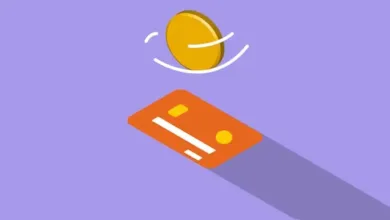Debt Management vs. Debt Settlement: Key Differences and How to Choose the Best Option

Table of Contents
Debt management is a critical aspect of financial well-being. For many individuals, mounting debt can feel overwhelming, leading them to explore options like debt management and debt settlement. While both approaches aim to reduce the burden of debt, they differ significantly in their strategies, outcomes, and long-term effects on your financial health. Understanding these differences is crucial to making an informed decision that aligns with your financial goals.
Understanding Debt Management
Managing debt involves working with a credit counseling agency to create a plan for repaying your debts over time. This method focuses on consolidating your debt payments into a single monthly payment, often with reduced interest rates and fees. The credit counseling agency negotiates with your creditors on your behalf, aiming to create a repayment plan that is manageable and affordable.
How Debt Management Works
- Initial Consultation: The process begins with a consultation where a credit counselor reviews your financial situation, including your income, expenses, and outstanding debts.
- Debt Repayment Plan: The counselor works with your creditors to negotiate lower interest rates, reduced fees, and a consolidated monthly payment.
- Single Monthly Payment: You make one monthly payment to the credit counseling agency, which then disburses the funds to your creditors.
- Debt Repayment Timeline: Debt management plans typically last three to five years, during which time you must adhere strictly to the payment schedule.
Pros of Debt Management
- Lower Interest Rates: Negotiated lower interest rates can make it easier to pay off your debt.
- Simplified Payments: Consolidating multiple payments into one reduces the complexity of managing your finances.
- No Need for New Loans: Unlike debt consolidation, debt management does not require taking out a new loan.
- Positive Impact on Credit: If you stick to the plan, your credit score can improve over time as debts are paid off.
Cons of Debt Management
- Time-Consuming: Debt management plans take several years to complete, requiring a long-term commitment.
- Limited Flexibility: Once you enter a debt management plan, you must stick to the agreed payment schedule, leaving little room for financial emergencies.
- Fees: Credit counseling agencies may charge fees for their services, which could add to your financial burden.
Understanding Debt Settlement
Debt settlement, on the other hand, involves negotiating with creditors to settle your debts for less than the total amount owed. This approach typically requires you to stop making payments on your debt, allowing it to accumulate late fees and interest while you save money for a lump-sum settlement offer. Once you have saved enough, a debt settlement company negotiates with your creditors to accept a reduced payment as full satisfaction of the debt.
How Debt Settlement Works
- Stopping Payments: You stop making payments on your debts, allowing them to become delinquent.
- Saving for Settlement: You set aside funds in a dedicated account, typically managed by the debt settlement company, to accumulate enough for a lump-sum payment.
- Negotiation: The debt settlement company negotiates with your creditors to accept a lower payment, often 30-50% of the total amount owed.
- Settlement Agreement: Once an agreement is reached, you pay the agreed-upon amount, and the debt is considered settled.
Pros of Debt Settlement
- Debt Reduction: You may pay significantly less than the total amount owed, potentially reducing your debt by thousands of dollars.
- Single Payment Resolution: Once a debt is settled, it is considered fully resolved, allowing you to move forward.
- Shorter Timeline: Debt settlement can be a quicker process compared to debt management, especially if negotiations are successful.
Cons of Debt Settlement
- Negative Impact on Credit: Stopping payments can severely damage your credit score, and the settled debt may remain on your credit report for up to seven years.
- No Guaranteed Success: Creditors are not obligated to accept settlement offers, and some may refuse to negotiate.
- Fees and Taxes: Debt settlement companies charge fees for their services, and forgiven debt may be considered taxable income by the IRS.
- Risk of Lawsuits: Creditors may pursue legal action while you are in the debt settlement process, adding to your financial stress.
Comparing Debt Management and Debt Settlement
When deciding between debt management and debt settlement, it’s essential to weigh the pros and cons of each approach based on your financial situation.
Impact on Credit Score
- Debt Management: This method typically has a positive or neutral impact on your credit score if payments are made on time. While enrolling in a debt management plan may initially cause a small dip in your credit score, consistent payments will eventually improve it.
- Debt Settlement: The impact on your credit score is more severe. Stopping payments causes significant damage to your credit, and settled debts are marked on your credit report, affecting your ability to secure credit in the future.
Total Cost
- Debt Management: While you pay the full amount of your debt, the lower interest rates and waived fees reduce the overall cost. The fees charged by credit counseling agencies are usually modest compared to the savings on interest.
- Debt Settlement: You may save money by paying less than the total owed, but the associated fees, potential taxes on forgiven debt, and damage to your credit score could offset those savings.
Time Commitment
- Debt Management: Requires a long-term commitment of three to five years. This approach is slow and steady, focusing on gradual debt repayment.
- Debt Settlement: Can be faster, but the timeline depends on how quickly you can save money for settlement offers. The process could take a few months to a couple of years.
Flexibility
- Debt Management: Offers limited flexibility. Once you enter a plan, you must adhere to the payment schedule, which can be challenging during financial hardships.
- Debt Settlement: More flexible in terms of how much and when you save for settlements, but the lack of regular payments increases the risk of legal action by creditors.
Which Option Is Right for You?
Choosing between debt management and debt settlement depends on your financial goals, current situation, and willingness to accept potential risks.
- Debt Management is ideal if you want to repay your debt in full, maintain or improve your credit score, and prefer a structured repayment plan. This method is best suited for those who can commit to a long-term plan and have steady income to make regular payments.
- Debt Settlement may be a better option if you are facing severe financial hardship
External Resources:
- National Foundation for Credit Counseling: Debt Management Plans
Provides a comprehensive overview of debt management plans and their benefits. - Consumer Financial Protection Bureau: Choosing a Debt Relief Company
Offers advice on selecting a reputable debt relief company, crucial for those considering debt settlement. - Investopedia: Debt Management vs. Debt Settlement
A detailed comparison of debt management and debt settlement, helping readers understand which option may be best for them.





